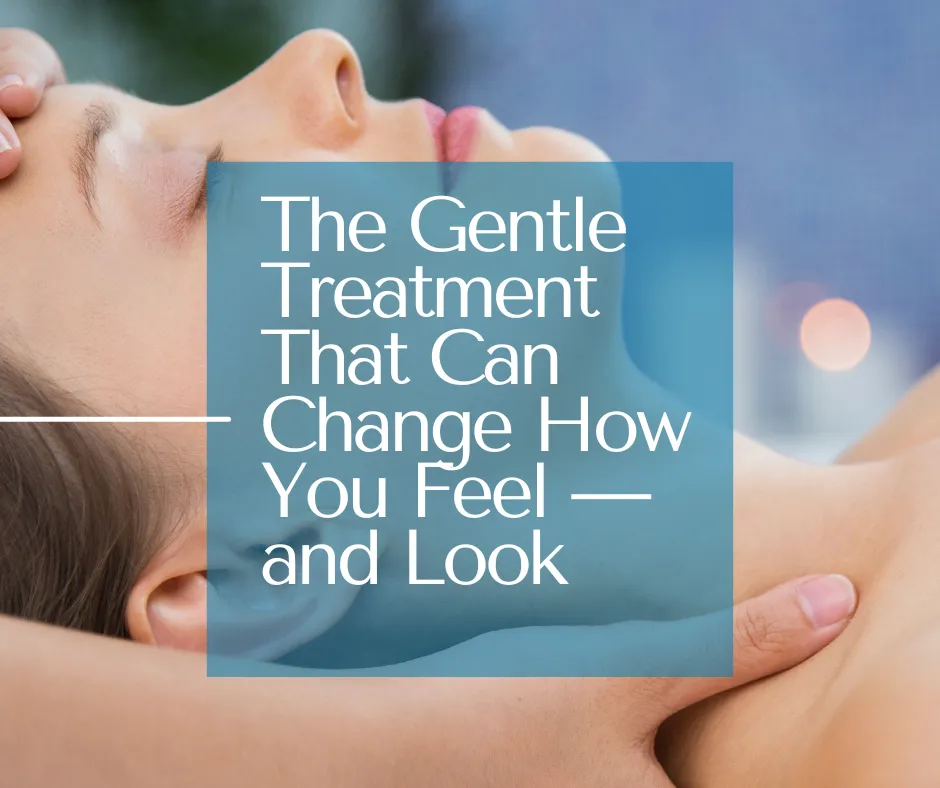
Facial symmetry support with craniosacral therapy at Healthflow ND

It’s Not Just in Your Head — But It Might Be About Your Head
You’ve stretched, foam rolled, seen a chiro, maybe even tried massage — and still, something’s “off.”
Your jaw clicks. Your face feels uneven in photos. You get tension headaches, or you’re always adjusting your posture.
It’s not dramatic. But it’s persistent. And it could be rooted in your craniosacral system — the subtle, structural network connecting your skull, spine, and nervous system.
This is where Craniosacral Therapy (CST) can help.
🧠 What Is Craniosacral Therapy?
CST is a gentle, hands-on technique that focuses on releasing restrictions in the cranial bones, spinal column, and surrounding tissues. Practitioners use soft touch — often no more than the weight of a nickel — to restore flow, alignment, and balance across the system.
While originally developed to support brain and spinal cord health, CST has gained popularity for its effects on:
Facial symmetry
Postural alignment
Chronic headaches and TMJ tension
Stress-related fatigue
Nervous system resilience
🔍 What Can Craniosacral Therapy Help With?
People seek CST for a wide range of reasons — some structural, some energetic. Common examples include:
Facial asymmetry or tension
(especially from clenching, grinding, or chronic stress)TMJ dysfunction or jaw alignment issues
Neck, spine, or pelvic misalignment
Head shape changes from injury or posture
Chronic tension or migraines
Post-concussion support
A sense of compression or disconnection in the body
And while CST can’t replace surgery or orthodontics, it’s often used as a complementary therapy to support healing, prevent compensation patterns, and enhance physical ease.
👶 Can CST Change Head Shape?
In pediatric care, CST is sometimes used to address conditions like plagiocephaly (flat head syndrome) or mild facial asymmetry from birth canal pressure or early posture patterns.
By gently encouraging cranial mobility and relieving soft tissue tension, CST may help support more symmetrical development in infants — and comfort in adults who’ve carried old patterns for years.
👩⚕️Who Offers Craniosacral & Related Therapies at Healthflow ND?
We’re proud to offer gentle, integrative care for nervous system and structural balance through these skilled practitioners:
✨ Fiona McDevitt, PT — Registered physiotherapist with advanced training in craniosacral therapy, lymphatic work, and postural rehabilitation.
✨ Kim Tenham, RMT & CLT — Registered massage therapist and certified lymphedema therapist who integrates craniosacral techniques for nervous system regulation and structural alignment.
✨ Amy Shantz (Manual Osteopath) — Manual osteopath with expertise in cranial and visceral techniques that support whole-body alignment and fluid dynamics.
Whether you’re seeking nervous system support, subtle postural adjustments, or a deeper sense of balance, our team customizes care to meet your unique needs.
🧭 What to Expect from a Session
CST is extremely gentle — many clients feel deeply relaxed, or even drift into a meditative state during treatment.
There’s no “cracking” or intense pressure.
Instead, patients often describe it as a quiet unwinding — like their body is reorganizing from the inside out.
📍Ready to See and Feel the Shift?
If you’re navigating tension that just won’t go away — or you’re curious whether your structure could be influencing how you feel — craniosacral therapy is a safe and powerful place to start.
